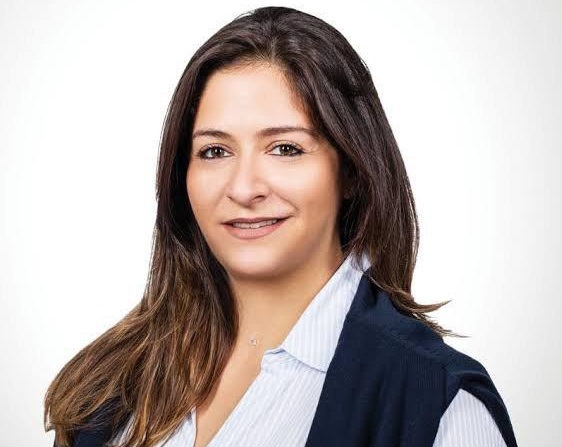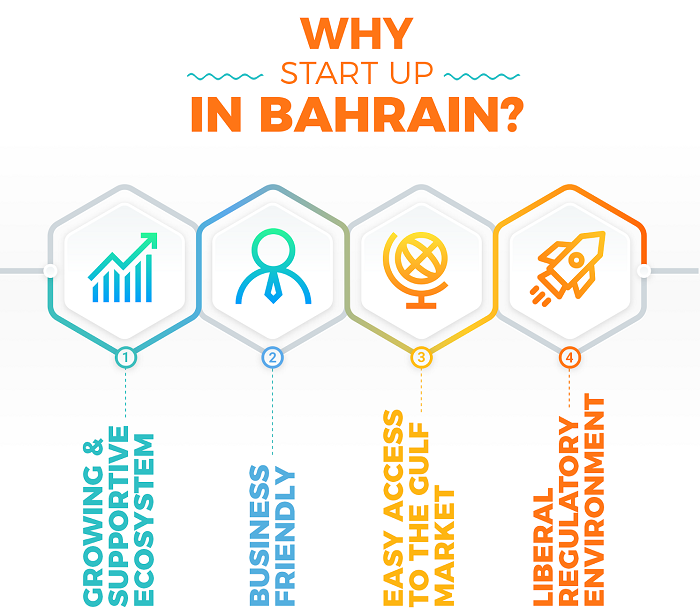By: Ingy ElSafy & Moslem Ali
Cairo – Mubasher: Startups endure several challenges in obtaining financing rounds, but this may not be an issue for a foreign startup if it decides to set up in Bahrain.
Pakiza Abdulrahman, Manager of Business Development for Startups at Bahrain Economic Development Board (EDB), talked to Mubasher during the RiseUp Summit 2019, held on 5-7 December at the American University in Cairo (AUC), about the facilities Bahrain offer to integrate startups within its ecosystem.
Pakiza Abdulrahman has recently stated to Mubasher: “I encourage startups and ecosystem builders in Egypt to visit Bahrain and connect with us to arrange a startup tour.”

(Pakiza Abdulrahman, Manager of EDB's Business Development for Startups)
What should startups do to launch their business in Bahrain?
Startups have to obtain a commercial registration in Bahrain in order to [legally] own a business, and be considered a local company.
This unlocks grants from the government to promote their activities. For example, if a startup wants to create a digital campaign, 50% of that marketing campaign cost will be subsidized by the government through the Tamkeen labor fund, which injects money into the ecosystem.
Startups do not repay the funding, since it is a grant by Tamkeen, not a debt.
We have built a strong network of incubators and accelerators to handhold the startups and act as a landing pad for them to set up their concept, meet with mentors, and accelerate their setup process and their growth.
“Our measure of success is not the number of companies we created. Our measure is for startups to achieve their goals.” We make sure to understand where they want to reach and what they want to achieve out of Bahrain, so we can guide them through the fast-track setup process.
In terms of financing, do you help startups get financing from banks as well?
We do, as we provide connections with different commercial, Islamic, and digital banks opening up in Bahrain.
How can a startup be eligible for the Tamkeen funding?
Following the commercial registration in Bahrain, startups shall submit their operational plan for three years. Then, we have to agree on milestones with them regarding their business.
Do you perform any kind of supervision during the process?
Not the EDB, but Tamkeen does as they assign a mentor for startups.
Being the connectors, we are an investment promotional agency that encourages and engages with events to promote Bahrain, in addition to providing guidance, facilitation, and after-care support for any organization that sets up in Bahrain. This can be for startups and all the way to large manufacturing companies.
However, the EDB’s focus is on startups themselves. For example, we make introductions and help startups fill the form once they want to unlock those grants and get benefits from the government.
Through the Startup Bahrain initiative, we focus on a lot on policies, reforms and regulations that need to be put in place to act as a soft infrastructure to empower startups and scale-up ecosystem.
How long does it usually take for a startup to get a grant?
It varies from a company to another based on the activity and services provided, as well as the required paperwork. In general, it is a very quick process, as I signed up companies in three to four weeks. Sometimes, it took up to a month and a half.

Can you give us real examples of startups coming from abroad and succeeding in Bahrain?
Yehia Bradawy, an Egyptian entrepreneur, who I met during the RieUp Summit in 2018. Yehia wanted to set up a fintech startup and was inquiring about what Bahrain can offer to be involved. I guided him to the nine-month program fintech sandbox in the central bank of Bahrain (CBB) where he applied his idea and graduated, he then got a license from the CBB.
Yehia graduated recently this year, and now he is the first licensed crypto exchange platform in the Middle East, called Rain. After this, “Yehia proudly calls Bahrain home.”
He joined us as part of Bahrain delegation in Web Summit 2019, the largest startup event in the world where around 75,000 people attended in Lisbon in November. During the event, Yehia spoke out on his startup and built connections with different markets.
Would you mention part of your role in supporting MENA startups on the global scale?
Earlier this year, the EDB was a partner to the World Economic Forum (WEF). We wanted to create an initiative to empower MENA startups, therefore, we sponsored the 100 Arab initiative that gathered 100 Arab startups from different countries.
Which MENA country contributed the most in this initiative?
In terms of numbers, it was Egypt, but also there were participants from Jordan, Lebanon, Palestine, Morocco, Tunisia, Algeria, Bahrain, the UAE, and a few from Saudi Arabia and Yemen and all over the region. The startups were at different stages.
That gave the Arab businesses an opportunity to meet global decision makers and work together while collaborating on creative ways of solving challenges in our region.





